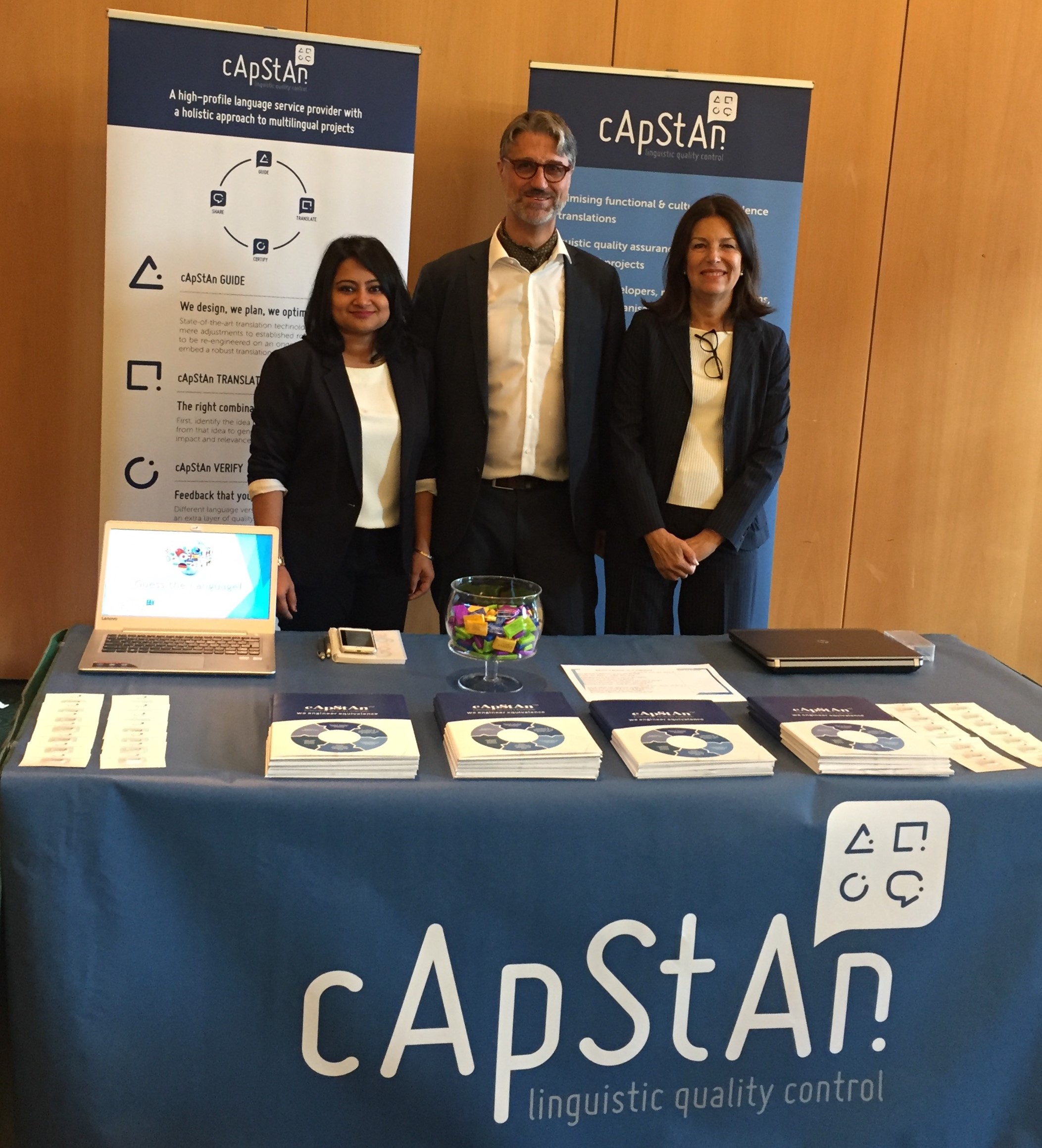
The Testing Industry, 21st Century Skills and the Medicane
by Steve Dept – cApStAn partner
Dublin, Lisbon, Amsterdam, and now Athens. This was cApStAn’s fourth participation in a conference of the European arm of the Association of Test Publishers (E-ATP). Why would a linguistic quality control agency participate in a test publishers’ conference? A high-level conference at that, with 327 attendees (of which 24 were local participants, from Greece) and with 54 sessions spread over two and a half days.
Perhaps because, for the past two decades, cApStAn has organised, coordinated and supervised the translation/adaptation process in a large number of assessments of both cognitive and non-cognitive skills. We have engineered linguistic equivalence in international large-scale assessments (ILSAs) as well as in psychological screening tests; in talent management instruments as well as in evaluations of educational achievement. cApStAn has been involved in the transition from pencil and paper tests to computer-delivered tests and leads an ambitious R&D effort for the integration of translation technology and test delivery platforms. And all major assessment platform providers are present at E-ATP.
We are both keen to stay on top of new developments in the testing industry, and keen to share our methodology with test publishers who go international. What are the linguistic and cultural challenges in adapting assessments of 21st century skills, those skills outlined in very different ways by the two outstanding keynote speakers this year? Charles Fadel and Amanda Malouchou both conveyed a sense of urgency: the testing industry will not only accompany but actively contribute to drive the drastic change in skills this generation and the next need to acquire and utilise. We want to be part of this revolution. And no Mediterranean hurricane-medicane for short-will disrupt the activity of this cluster of eminent representatives from the testing industry worldwide. No medicane will prevent them from playing the pioneering role that the fourth industrial revolution demands from them. And from us. The extreme weather conditions kept us indoors and focussed at what turned out to be an excellent conference indeed.